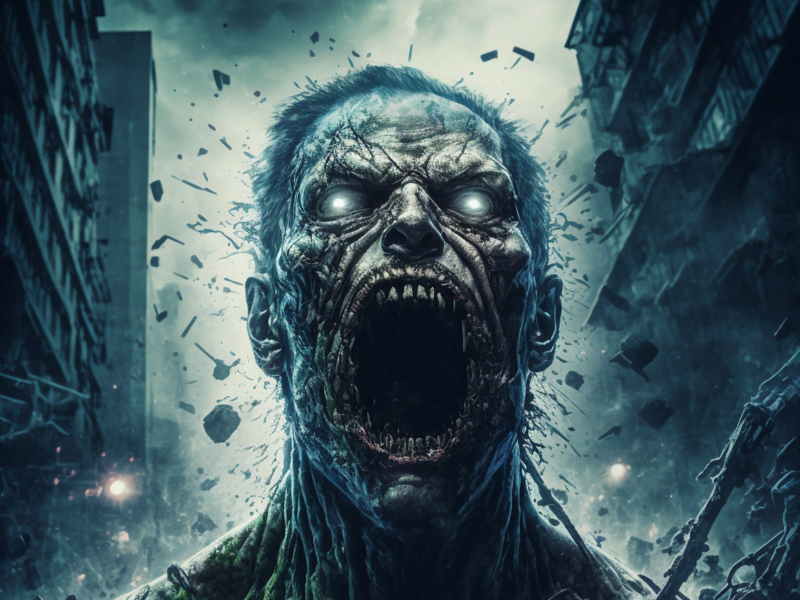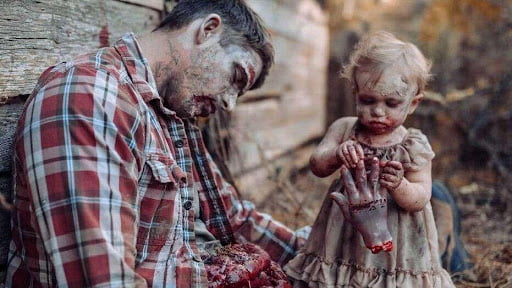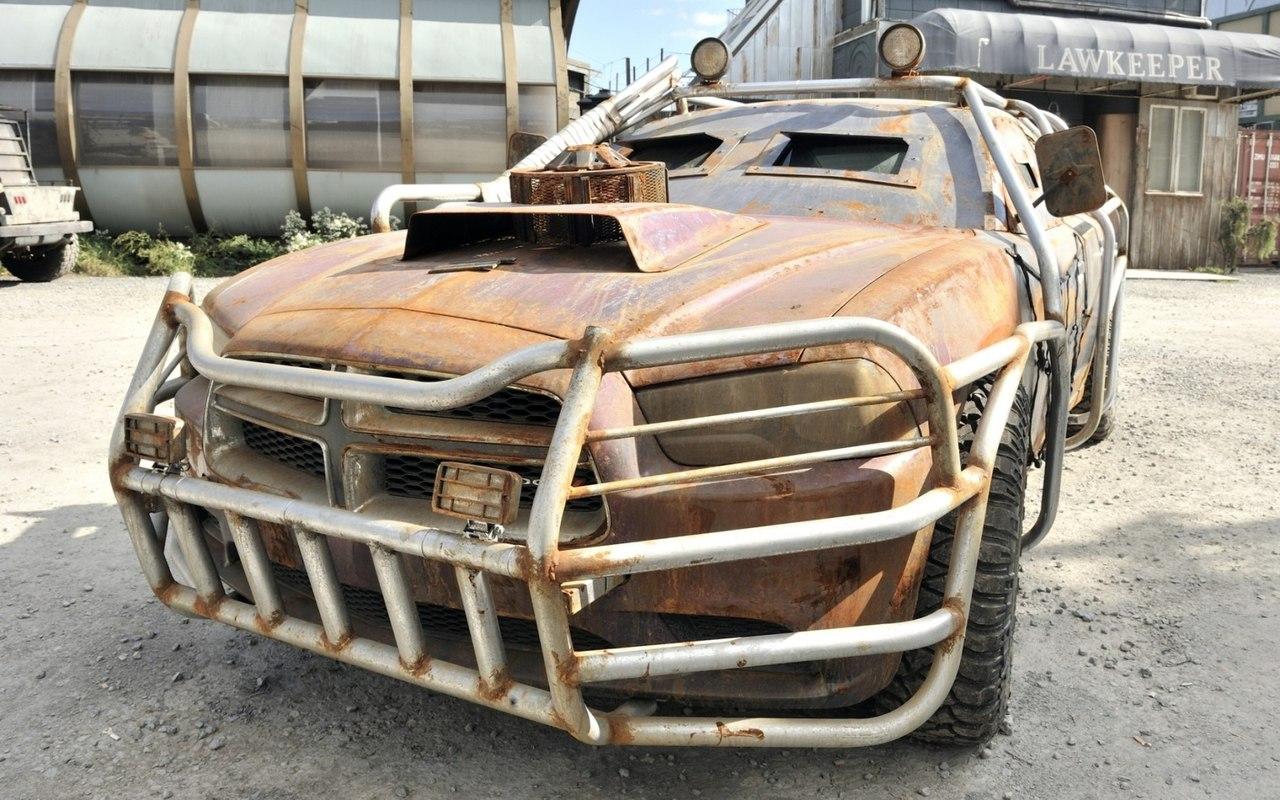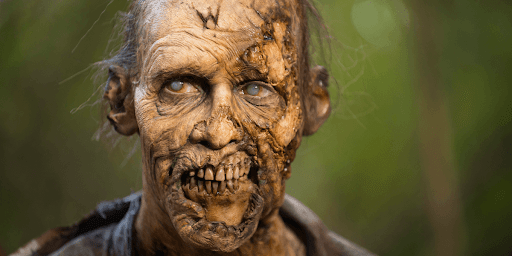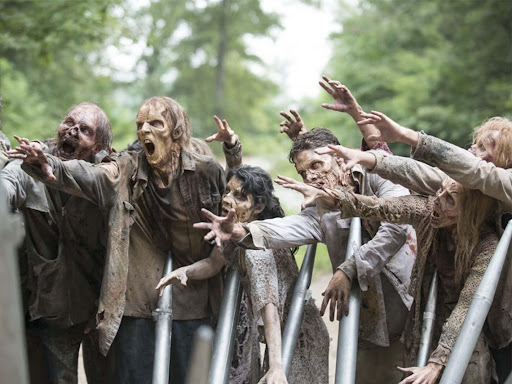If a zombie apocalypse has ever run shivers down your spine, you must have thought of ways to escape such a situation. And what better time to escape than when zombies are in oblivion? Some theories fixate on a nocturnal notion with zombies. Unfortunately, these aren’t entirely true.
Have you ever been curious about zombies and their survival, then you must have questioned, ‘Do zombies sleep? A straight forward answer to this is they don’t.
Do They Not Sleep?
If you think the sun will save you, you are dangerously wrong. Most of us mistakenly assume that zombies are nocturnal. They come out of their sheltered places, move around in their stilted gaits, and hunt for brains only at night.
Zombies prowl during the daytime too. They actively hunt for fresh brains to feed upon at all times of the day. In reality, zombies are arrhythmic and insomniac but not nocturnal. They cannot sleep.
Why Can Zombies Not Sleep?
Remember how one turns into a zombie? Through mediation, poisoning, or, to put it simply, through death. Regardless of the case, the person incurs irreversible and permanent brain damage. But how does this brain damage result in sleep deprivation? Let’s find out.
The Biology Behind Zombie’s Inability to Sleep
Typically, the brain is considered the control center of all the activities. Contrarily, with a permanently damaged brain, zombies lack in performing most activities efficiently, with sleep being glaring.
Let’s first talk about the peanut-sized hypothalamus—the part of the brain responsible for sleep, temperature regulation, fatigue, hunger, and thirst. The hypothalamus contains a specialized area known as the suprachiasmatic nucleus. This nucleus receives information about light exposure and regulates behavioral rhythm. Damage to this specialized area results in abnormal or no circadian clock. When this clock isn’t ticking, it stays permanently in the day state.
A permanent day phase implies a continual high metabolism. Therefore, zombies need a constant refueling of energy. They take up a lot of energy and quickly burn all of it. Thus, they have an insatiable hunger for high-calorie food like fresh brains.
Another part that suffers from brain damage is the pineal gland, a tiny organ predominantly involved in regulating sleep hormones—the absence of this gland consequents in insomnia. With a permanent state of wakefulness, zombies don’t efficiently digest the food; instead, they burn all of it immediately.
In short, zombies’ behavior and physiology are mere consequences of a broken circadian clock. A circadian clock in the day phase implies an ongoing need for food (of course, fresh human brains) during day time and night.
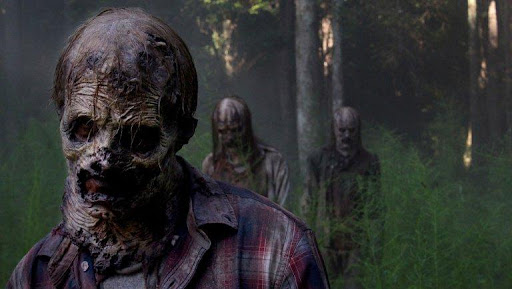
How Do Zombies Cope Without Sleeping?
Scientifically speaking, any living being would drop dead after a few days of sleep deprivation. Sleep deprivation speeds up our cellular decaying or breakdown, leading to death bed much quicker.
However, zombies accomplished longevity by mimicking the survival tactics of living beings.
They slow down their cellular breakdown to ensure their longevity. Unlike the living, zombies don’t require a tuck-in bed routine or eight hours long sleep to recharge themselves. They might stand aimlessly. They don’t fall asleep entirely but rather stay in a holding pattern. This way, they move around more efficiently after a quick recharge.
If you presume an aimlessly standing zombie is too slow to do anything, think again. It may only be recharging, preparing to savor the next meal.
Why Don’t Zombies Need Sleep?
There are more straightforward answers to this question. However, there are a few theories that might help us in explaining this question. One theory is the energy conservation theory, which suggests that sleep is critical in conserving energy. During sleep, our metabolism significantly drops, thus allowing power to be retained and used later. However, this theory doesn’t pertain to zombies.
Zombies are dead beings and don’t have a metabolism. This absence of metabolism suggests they don’t need to conserve energy. Another theory is the theory of restoration. It suggests that our body restores and repairs itself while we sleep. Again, this theory doesn’t apply to zombies, as their bodies are continually decaying and struggle with wound healing.
These theories explain why zombies don’t need sleep and make it evident that they cope without a wink of sleep.

How Long Can Zombies Go On Without Sleep?
No reliable figure or statistics can tell how long zombies go on without sleeping. Considering what we know about zombies, it is safe to say that zombies can go on for their entire life without sleeping. However, they require a recharging time, which they mill around aimlessly.
Is Zombie Sleep The Same As The Human Sleep?
Let’s be honest; zombies are merely humans surviving in the reverse direction. So, what is regular for them is precisely what is abnormal for us. Before we dive into zombie sleep, Let’s briefly discuss what we know about human sleep. Note that scientists are still trying to demystify the concept of human sleep, so we only know a few factors about the sleep patterns of zombies.
First, there isn’t one structure of the brain that supports sleep. Several regions and parts of the brain are involved in sleep. The hypothalamus contains a group of cells called a suprachiasmatic nucleus (SCN), which generates and regulates the circadian rhythm. The brain stem sends the signal to the hypothalamus to maintain the transitions between sleep and wake. To let you tune out the external world, the thalamus goes quiet. The pineal gland enhances your sleep by releasing melatonin. Also, the basal forebrain and amygdala promote wakefulness and sleep.
In short, the entire human brain is involved in promoting sleep. Considering all these aspects, it is reasonably evident that any severe damage brain damage stalls or disrupts the sleep pattern.
Zombies do not require six to eight hours to function efficiently. They don’t sleep at all. That means zombie sleep is vastly different from human sleep. Zombies spend some time without doing anything- they stay aimless and purposeless for some time. During this time, they neither hunt for food nor consume hunted prey. The underlying reason behind the absence of this basic need is the permanently damaged brain.
Can Zombies Know You Are Around Even When They Are Sleeping?
First of all, zombies merely recharge or take some time to rest; they don’t entirely go to sleep. They are watchful of their surroundings even when they are resting. They can likely sense everything around them.
They are aware of the potential prey and even predator. Therefore, labeling a resting or a standing zombie as clumsy or slow isn’t wise. It might only be resting, recharging, and preparing for its next meal.

For How Long Zombies Rest?
There is yet to be a definite answer to this question. We are still determining how much time zombies need to recharge themselves. However, we know they don’t need hours and hours of sleep like humans. Their resting duration may range from a few minutes to a few hours long. It is also hypothesized that the resting period varies from zombie to zombie. That is why putting a number to zombies’ resting periods is complex. Theories also suggest that the resting period is vital in increasing their longevity.
Some findings also point to the zombie hibernation. These findings conclude that zombies can acquire a state of dormancy. Their dormancy period is vastly different from the hibernation of most mammals. Typically, most mammalian animals reserve fats to be used during the hibernation period. This fat reserve is unavailable to zombies as they feed primarily on brains.
Though they lack in a fat reservation, their low breathing and heart rates resemble most of the hibernating animals. Their reduced heart activity also explains why assaults on their torso are ineffective. Furthermore, this indicates the remarkable abilities of zombies living underground or with limited air.
Conclusion
Do zombies sleep? It turns out that zombies live on efficiently without wanting to go to sleep. What we confuse as sleeping is only a zombie’s resting period. Zombies do not need to dose off, slip into oblivion and wake up to resume their normal functioning.
Well, come to think of it, sleep can be the biggest hindrance for most zombies. How? In an apocalyptic situation, where every brain is precious, a few minutes of catching sleep can make them lose their chance of feasting on their brains. Where lack of sleep may seem like a deficiency, it is the key to survival for zombies.
It is not just about zombies’ sleeping habits; it is, most importantly, about how we encounter a seemingly ‘sleeping’ zombie. First things first, never assume that an aimlessly standing zombie is harmless.
They are well aware of every danger and potential prey around them. So, it is wise that you change your route when you see a purposelessly standing zombie. Try not to put yourself in a situation that may render life-threatening danger. After all, you can never be too careful.
